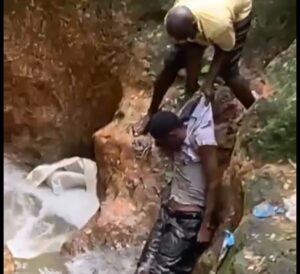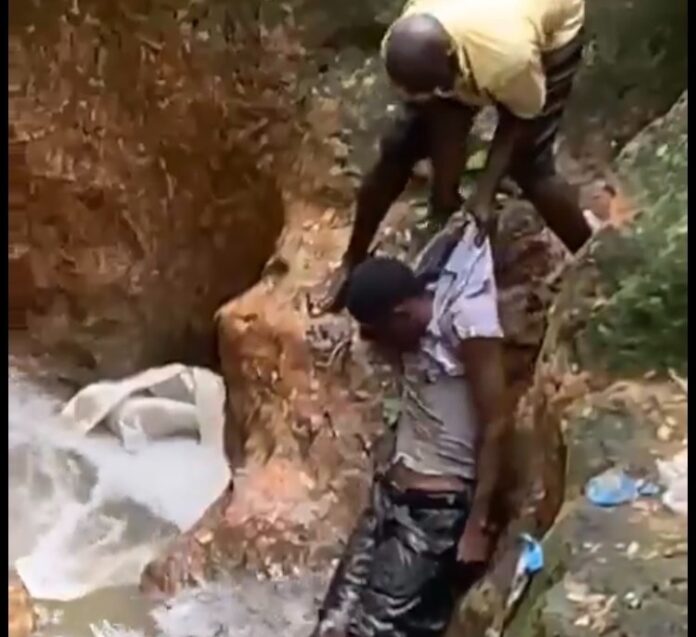A yet-to-be-identified young man is said to be currently battling for his life at the Lagos University Teaching Hospital (LASUTH) after being allegedly chased by policemen into a canal.

The tragic incident occurred on Wednesday, October 16 when plain-clothed police officers reportedly chased the victim in the Ipaja area of the state.
An X user Omorhemi in a viral video posted on Thursday, “Yesterday morning, police chased my friend’s husband until he fell into the canal. They took his slippers and the dropped money, then left when people started shouting. This happened at the Federal Bus Stop, Ipaja Ayobo axis. He is currently unconscious at LASUTH.
“The officers were in plain clothes. They stopped him on a bike, and the rider left. They searched him, accusing him of being a ‘Yahoo boy’ because of his tattoos. They began cocking their guns, threatening to shoot. He denied the accusation and tried to move away, but they chased him until he ran,“ Omorhemi alleged in the video.
In an attached video to the post, an elderly man was seen recovering the young man’s body from the canal flowing with water before being aided by two young men who helped to take the unconscious man up from the canal.
The narrator who spoke in Yoruba language gave an account of the incident as the young man was being pursued by alleged police officers. Meanwhile, the Spokesperson of the State Police Command, SP Benjamin Hundeyin, commenting on the post on his verified X handle, remarked that the police have no record of such an incident yet.
According to him, “Since we saw this video, we have been making concerted efforts to verify this claim, but nothing has turned up yet. We have checked our records, and no report has been made till now of this incident that the narrator explained happened yesterday.”
Hundeyin added, “Nonetheless, our investigation is ongoing. The Area Commander covering that entire axis is personally on it. Anyone with additional and useful information should please reach out to us. We will keep the public updated on our findings.”




